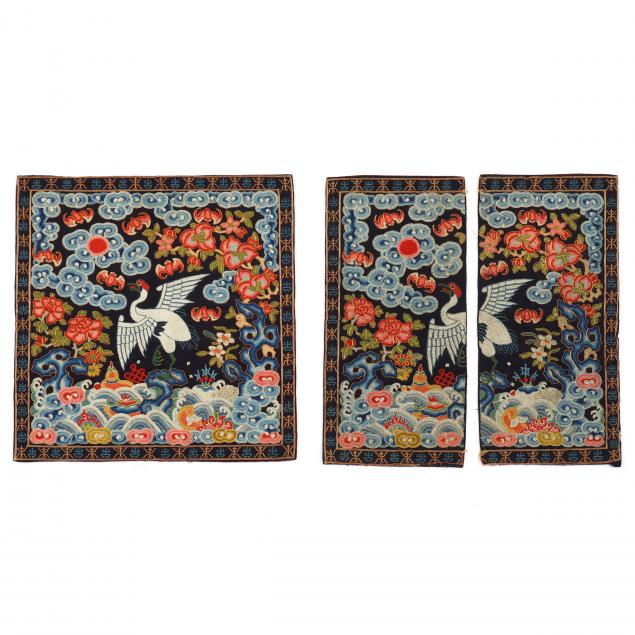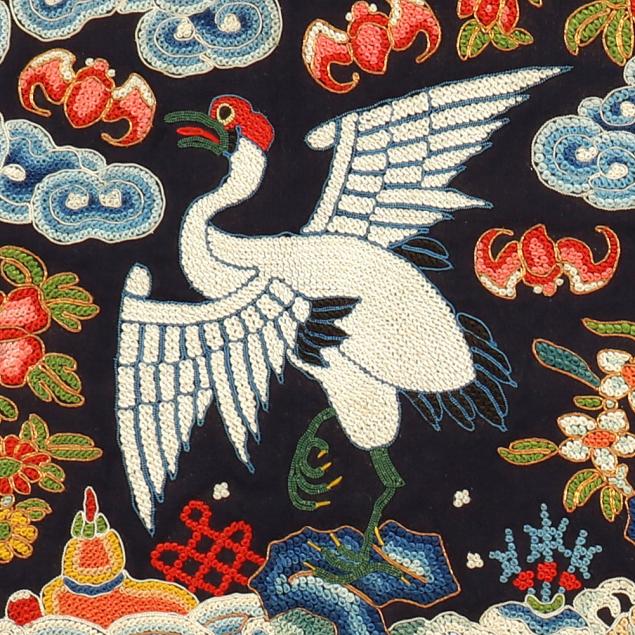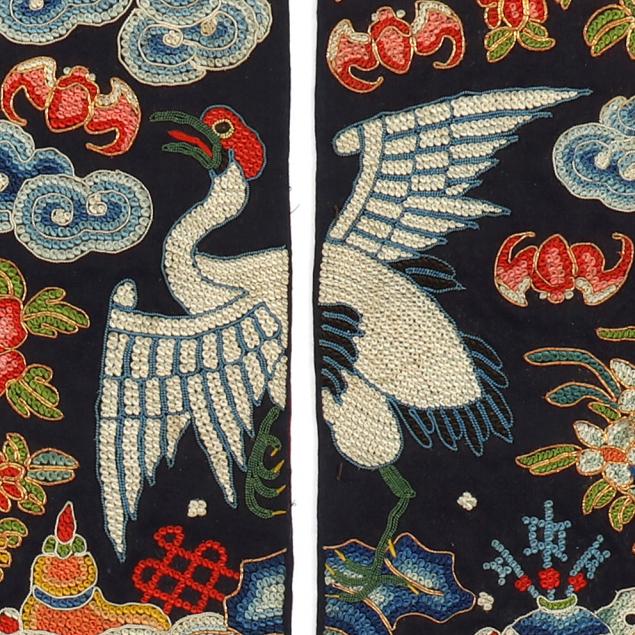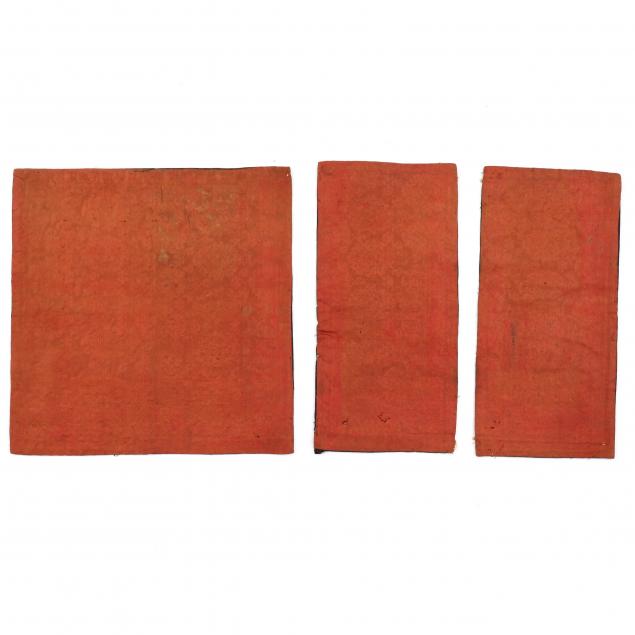
Lot 1023
A Pair of Chinese First Civil Rank Badges with Cranes
Explore more items like this one.
Visit our Asian Arts Department Asian Arts
Lot Details & Additional Photographs
12 1/4 x 12 in.
From the Collection of the late Dr. Schuyler Van Rensselaer Cammann (1912-1991), Esteemed Professor Emeritus in the Department of Oriental Studies, University of Pennsylvania
First rank civil official was the highest rank and the crane symbolized longevity and wisdom.
Schuyler Van Rensselaer Cammann was an American scholar renowned for his contributions to the field of art and archaeology of Asia, particularly Southeast Asian and Chinese art. He began his distinguished career at Yale University, where upon graduation he spent two years living in Changsha teaching English and European History. He traveled extensively at this time and developed a great interest and appreciation for Tibetan art. He returned to America to attend graduate school at Harvard, but before proceeding to his PhD, World War II broke out and Dr. Cammann returned to China to serve as a US naval officer. After the war, he completed his doctorate at John Hopkins and then went on to teach for many years at the University of Pennsylvania. He continued to conduct fieldwork expeditions to Asia. Over the length of his career, he received many notable awards and recognition for his scholarly contributions to the field of Asian art and archeology.
Very good estate condition; one badge with cut down the center from placement on a court robe; this same badge has some loose gold threads to border at bottom center and top center; reverse lining with some wear, small losses, and fading.




